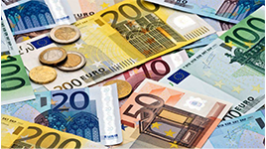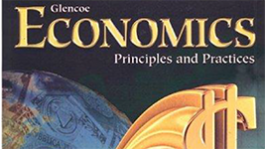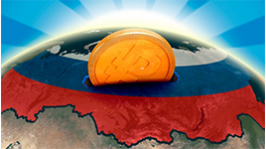Неэргодическая экономика
Авторский аналитический Интернет-журнал
Изучение широкого спектра проблем экономики
На английском языке
A comparative analysis is performed of the Russian and Western models for the organization of economic science. In the author’s opinion, the Russian model is inferior to its Western counterpart in a number of respects, but the bulk of evidence suggests that our country has every opportunity to strike upon the right path to new frontiers in this sphere of scientific knowledge. Russia has the chance to build a powerful and effective national economic school. Now the fulfillment of this opportunity, however, requires the observance of many preconditions – this is the art of statesmanship.
12.10.2018
A general methodology and specific guidelines for analytical prognostic estimates of the influence of tax rate changes on economic growth and the state of the Russian national budget are proposed. A new approach to the evaluation of the effectiveness of the tax system, which factors in the contradiction between its regulatory (productive) and fiscal (budgetary) functions is substantiated.
11.10.2018
A simple algorithm for finding Laffer points of the first and second kind, which relies on econometric relationships, is proposed. It has been tested on retrospective statistical arrays of the US, Swedish, British, and Russian economies. It is demonstrated that the fiscal factor was not decisive for Russia’s recessionary economy in transition. The author offers a new understanding of fiscal efficiency.
10.10.2018
This paper examines two classes of methods for assessing the state fiscal policy: econometric and analytical. A formal classification of critical states of the fiscal burden is given, and the properties of a country’s production activity and fiscal systems are studied. A two–parameter method is used to perform a retrospective assessment of the critical points of the tax burden and to analyze the specific evolution of the Russian fiscal system during its transition period. The directions and possibilities of applying the proposed techniques to predict the results of state fiscal policy are discussed.
09.10.2018
The paper considers a new stage in the formation of the Russian market of economic journals, the stage at which an increasing number of them are accepted for coverage in international databases such as Scopus and Web of Science. In order to make an adequate assessment of the qualitative changes that have occurred in the market, we propose to introduce significant adjustments to the methodology for compiling the academic Rating of leading Russian economic journals. The adjustments affect both the subsystem of scientometric indicators where it takes into account the potential of high citations, and the subsystem of expert evaluation where it takes into account the publication’s inclusion in the databases Scopus and Web of Science (WoS). We provide the results of the 4th wave of the Rating of leading Russian economic journals presented in the form of the Diamond List and the List of the second tier of journals. We analyze the shifts in the positions of the journals in comparison with previous years; we show that Russia already has 15 economic publications with international certification, among which five publications have double certification (both Scopus and WoS). The figures show that a new qualitative round of competition has begun among the journals that have received international recognition. We prove that a journal’s success or failure in its efforts to be included in international databases depends on whether its management is willing to follow the new rules and standards. This is largely the reason why many domestic journals have lost their positions. The following are considered as typical strategies a journal should use to achieve success: to implement a sequence of efforts to be accepted for coverage in international databases; to “hunt” for best authors; to provide a flexible peer review system; to publish a full-scale English version of the journal. We substantiate a new publishing paradigm, according to which Russian economists in the coming years will reconsider their views in favor of placing their papers in first–rate domestic publications rather than publishing them in second–rate foreign journals.
02.10.2018
Available econometric approaches to estimating the potential GDP and their shortcomings are examined. A general econometric procedure is described and (be case is made for the use of alternative approaches to estimating the potential GDP, based on the principle of determinism. The proposed techniques are verified on official statistics reflecting Russia’s economic development in 1989–1996.
27.08.2018
Economic reforms of the past few years have substantially changed the sectoral production structure in Russia. A discussion of the economic laws of the transition period («Vestnik RAN», 1998, no.1) is continued. Trends in the transformation of the sectoral structure of the Russian economy are considered. The main stages of economic reforms and the inner logic of their sequence are described.
24.08.2018
Economic science emerged more than 2000 years ago and still presents problems for further thought. This article discusses the special character of this branch of knowledge, its specific laws, and the problems facing economists. The author shows that unlike physical laws, most of economic laws are not written in a strong, weak form. In addition, there are no world constants in economic science.
20.08.2018
The author analyzed the statistical data supplied by the regional labor offices in Russia and used the results to assess the current state of external labor migration in Russia, to identify the basic trends and problems in the field, to make objective predictions for further developments, and to formulate a number of fundamental approaches to the governmental regulation of the export and import of labor.
20.08.2018
Certain theses of traditional imprinting theory are specified in the article. A hypothesis is proposed that, along with basic imprints, there are auxiliary ones that are characterized by pronounced contextualization and explain many human life strategies.
19.08.2018












